You know you’re in for a special academic conference when the keynote speaker rides by the lecture hall doing an arabesque on her Harley-Davidson! So began the 10th International Journal of Motorcycle Studies (IJMS) conference at the University of Colorado, Colorado Springs, held July 20-22. Following a pandemic hiatus, the conference came back strong, bringing together twenty presenters and numerous attendees from the UK, Canada, and across the US, all gathered to share research on motorcyclists and their machines. Managing editor of the IJMS, Dr. Sheila Malone, oversaw the two-day proceedings and presented their short film Origin Stories: Dykes on Bikes.
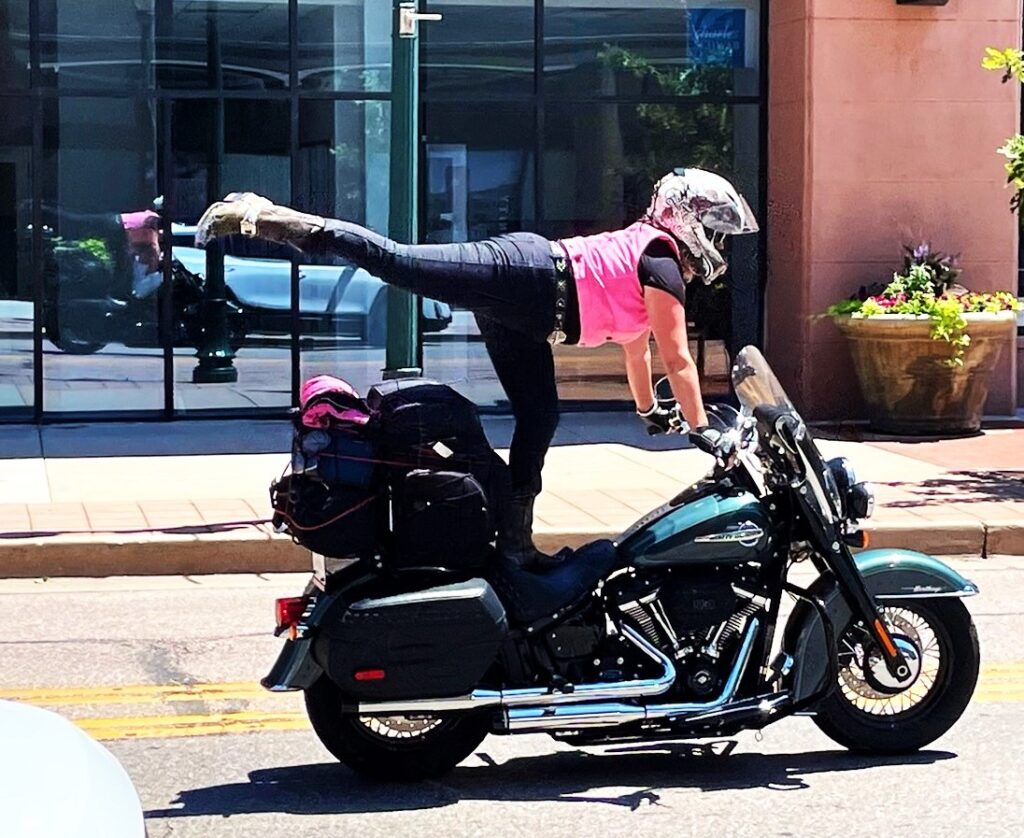
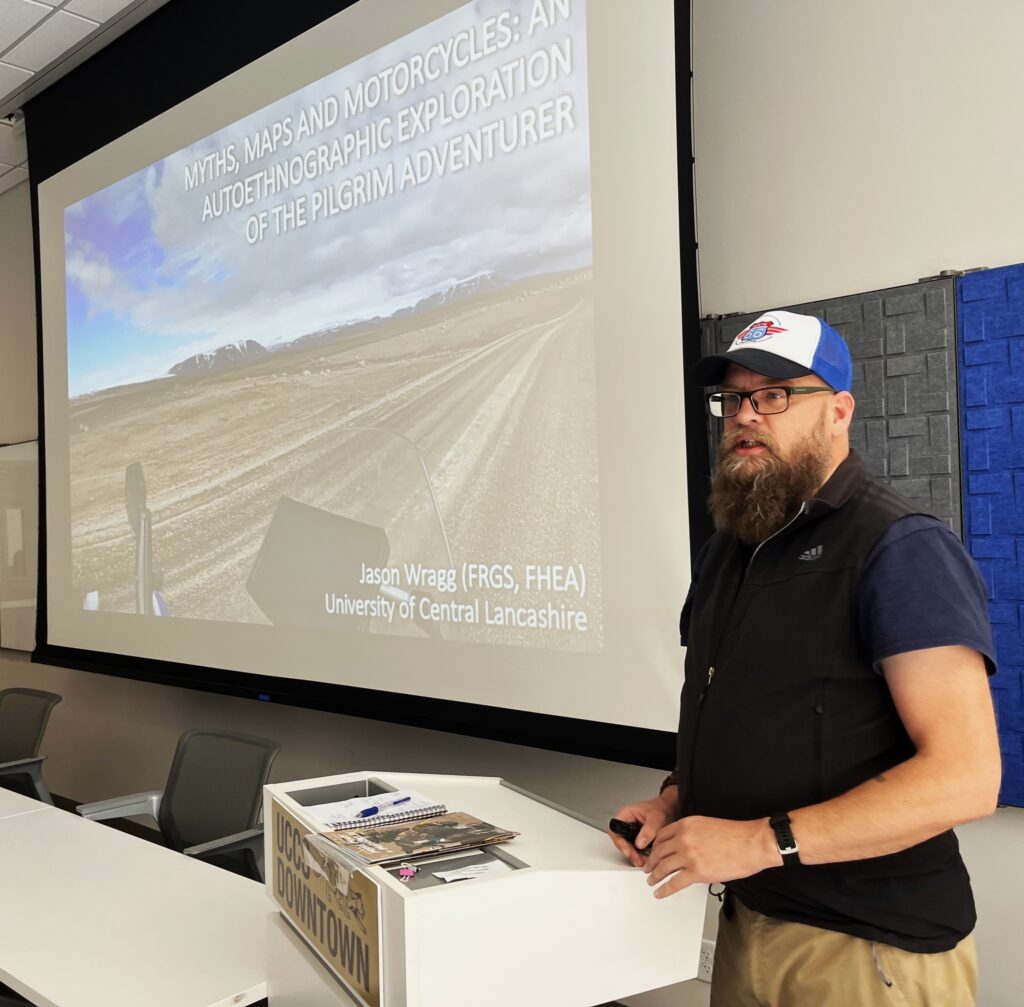
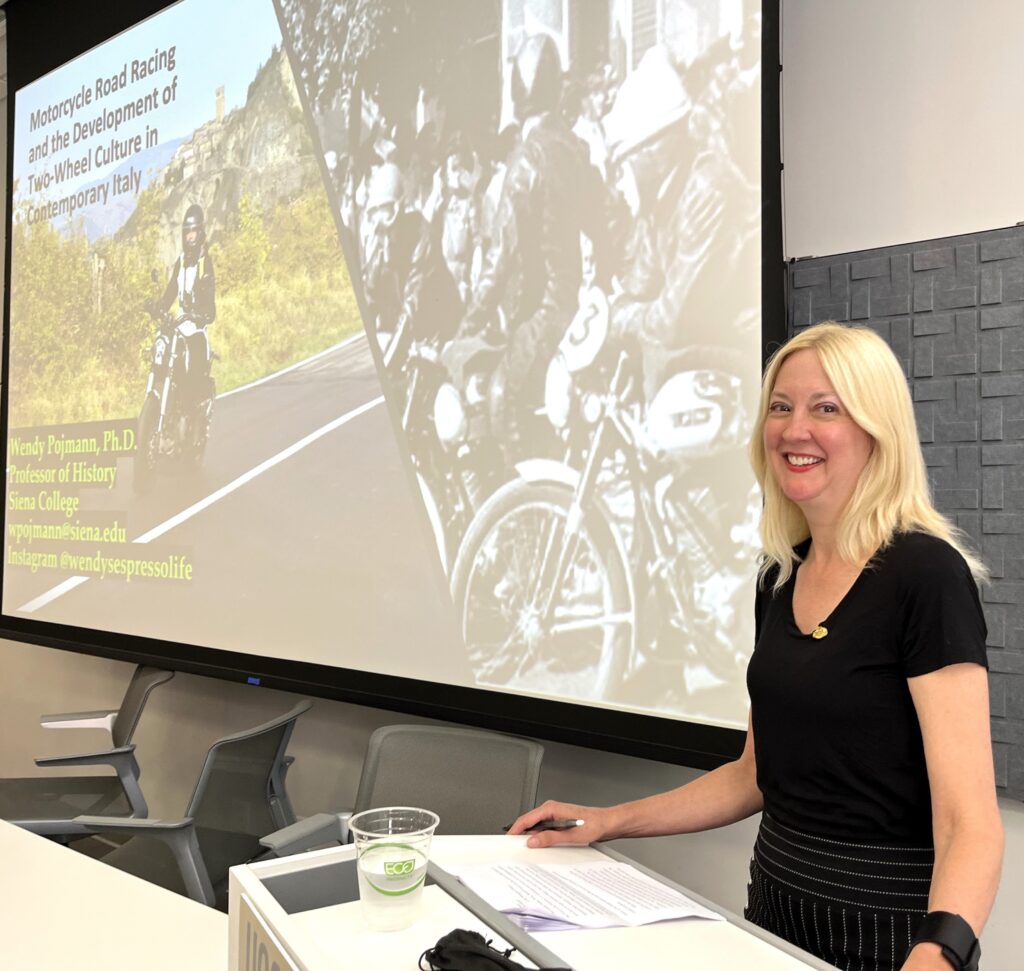
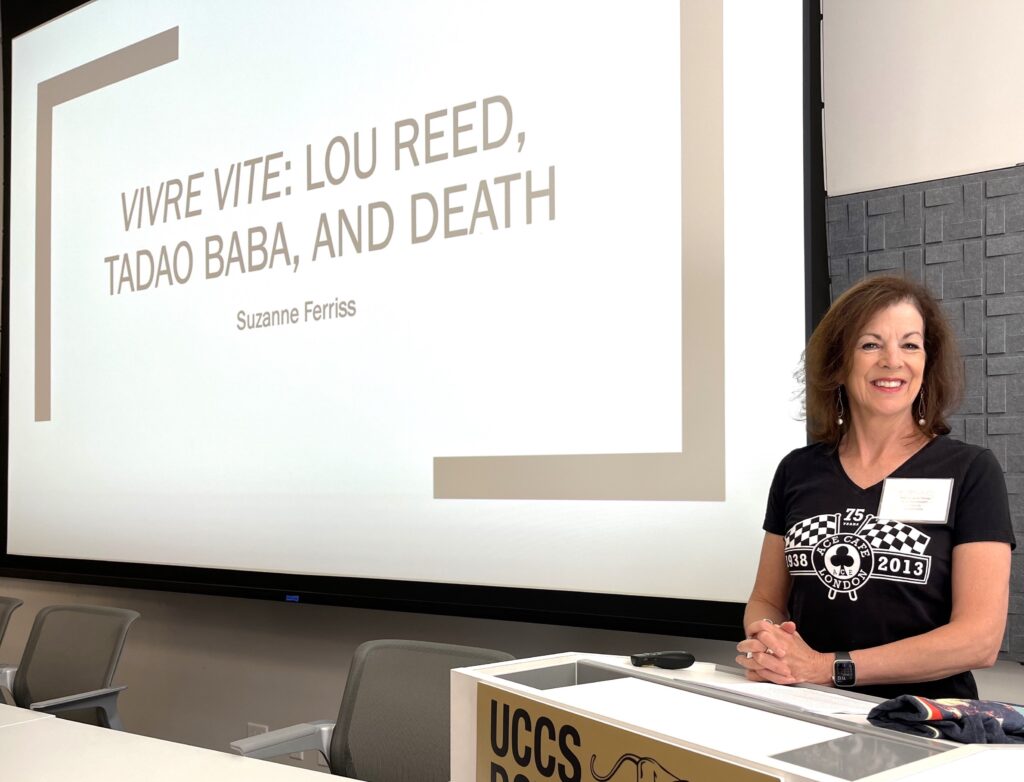
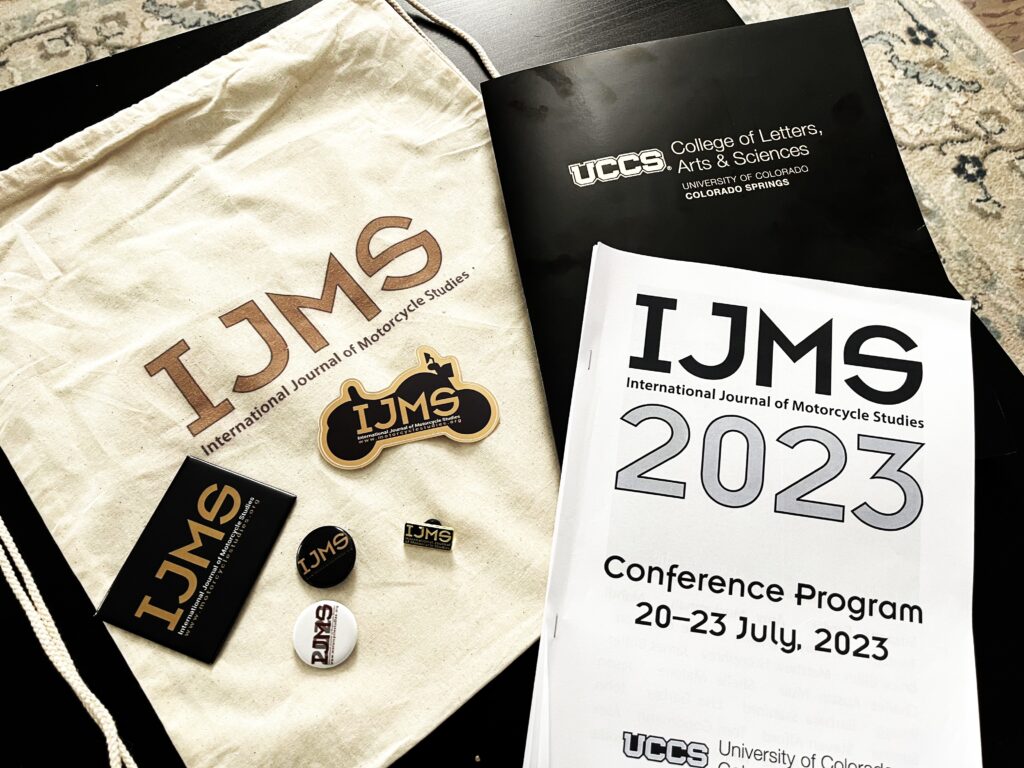
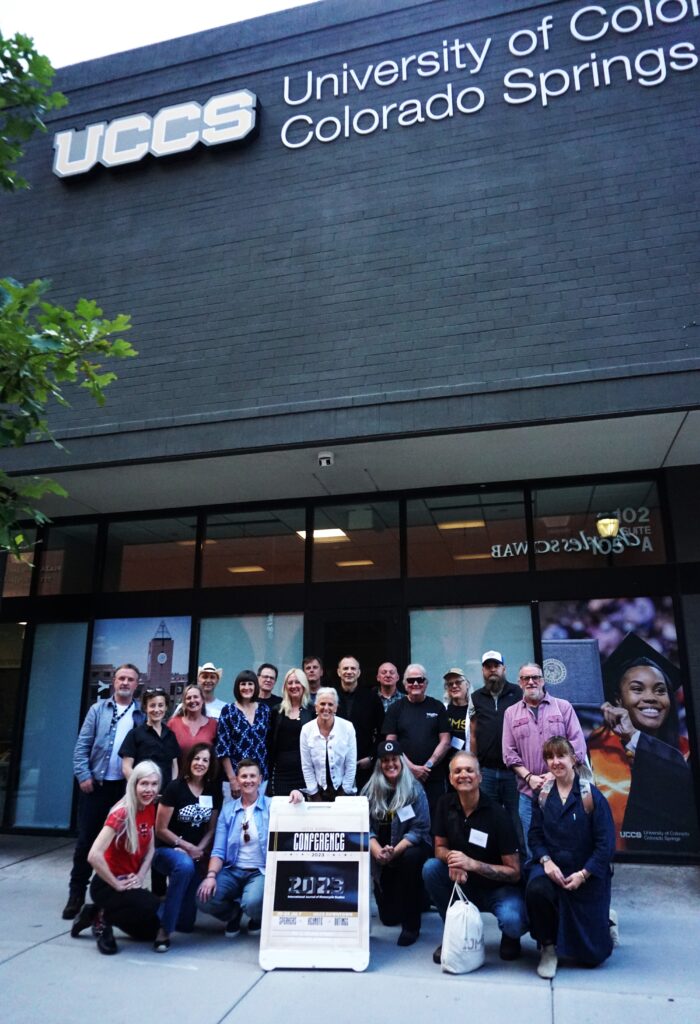
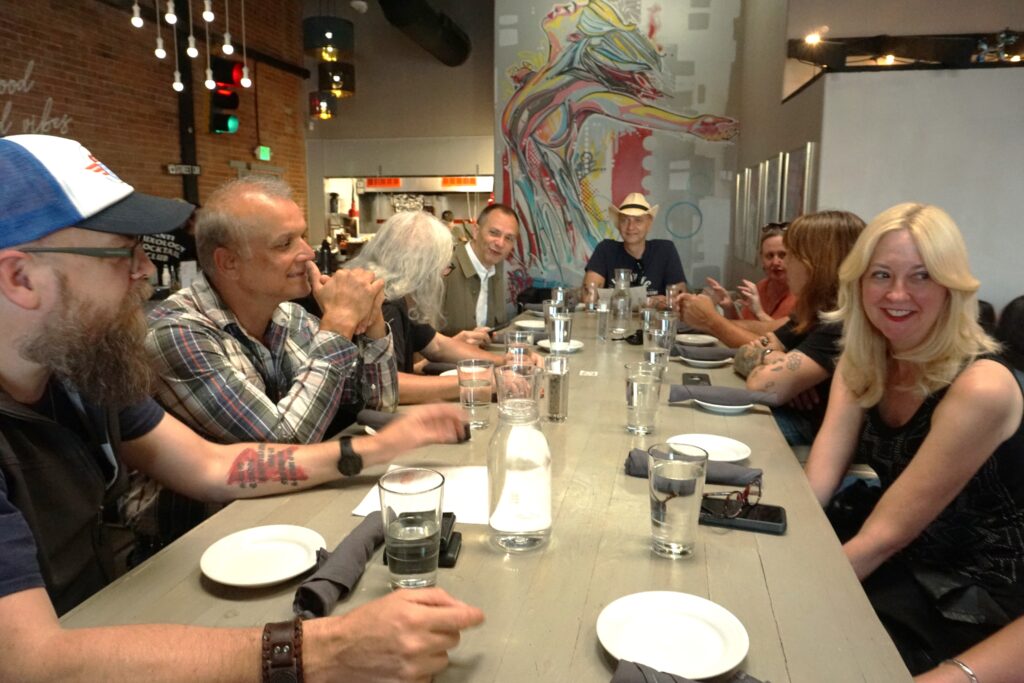
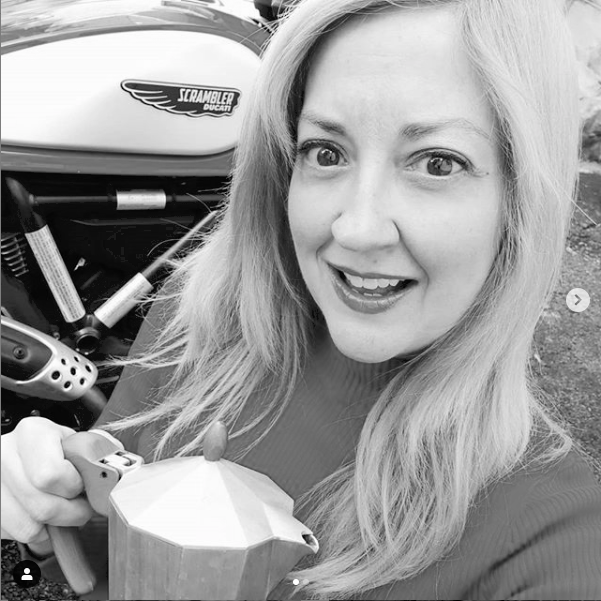

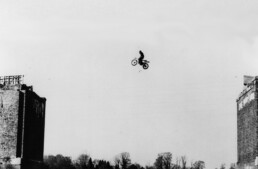
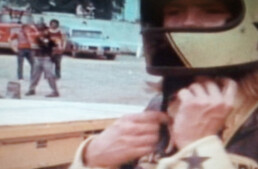
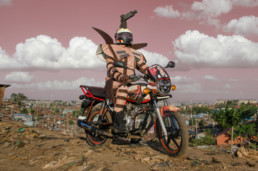
IJMS … great bunch of folks .. with intriguing and sometimes challenging articles … all of which well worth the read ( full discloser .. this is an academia oriented bunch … so a bit of education is needed .. no insult intended )
Almost wrote an article myself for the journal dealing with the contrast of what was then two current books on motorcycling … almost …because …. a bit of conflict arose with the friend / author of one of the two insisting that I take a particular point of view … which I disagreed with ( suffice it to say I loved both books for two very different reasons ) … so rather than offend the friend .. I let it drop …sigh ..
Sigh cause … well in the end the friend / author let the friendship drop .. for as Ralph Steadman has said .. ” For no good reason ” making my act of kindness a moot point .. sigh … so apologies to IJMS for not following thru …. lesson learned .. as we Joisey boys like to say … F-em if they can’t take a joke
But anywhoo … back to IJMS … dip a toe or two into their good works … and maybe make an appearance at their latest conference …. good stuff !!!
😎
PS; In light of y’all having been just down the road a bit this last conference … sorry I was unable to attend … circumstances preventing my attendance …
Sigh … so close … but so damn far …. oh well … maybe next time
Sigh … Kafka on the High Plains indeed ! … sigh ………………
‘Live Fast, Die Young, Leave a Good-Looking Corpse’: Coined by a Chicago Writer Willard Motley not Lou Reed.
Wrong as well Mr Stark …!!! Fact is you’re both way off track !!!
The first part of the quote ( Live fast and die young )) originated in the 1800’s during the rise of railroads etc by several newspapers from unknown sources .
The full quote came from … hold onto it .. cause yer gonna cry over this one I have no doubt …
… from a prtoto – liberated woman …a Mrs Irene L Luce … in 1920 … during her divorce hearing
Ole Willard being way late to the party re-quoting Mrs Luce …. in …
1947
As for Lou Reed .. well … he wasn’t even at the party .. missing it by a good 40 + years . But then again … and don’t get me wrong .. I have the greatest respect for ole Lou … but he never was one to come up with an original quote … digging others appropriate quotes out of the past to suit the moment
Rock On – Ride On – Remain Calm .,,, and Try Again good sir … cause on this one y’all missed the boat by a country mile and a half
Sigh … oh the joys of an advanced degree and the ability to research in depth rather than believe the detritus that passes as history and fact ……. 😎
Didn’t say Reed “coined” it.
Rule # 1 ;
Never correct a mistake or inaccuracy …. with another mistake or inaccuracy
In other words … research twice ( or four or five times .) ,,, before posting